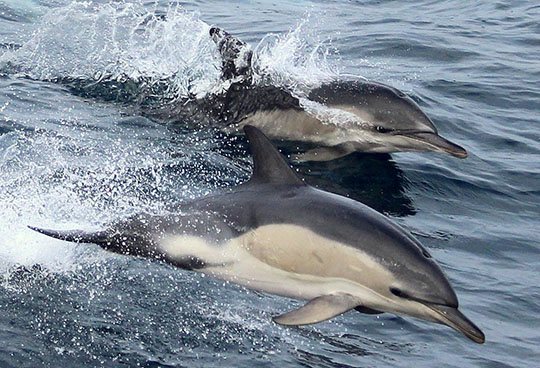New report on state of our seas is the most comprehensive of its kind says environment chief.
A new report into the state of our seas is the most comprehensive assessment of its kind according to environment chief David Small.
The UK Marine Strategy, which is led by the Department for Environment, Food and Rural Affairs (Defra) with input from devolved administrations including Department of Agriculture, Environment and Rural Affairs (DAERA), means we now know more about the condition of our local marine environment than we ever did before.
Mr Small, Head of DAERA’s Environment Marine and Fisheries Group said: “Today’s report gives us a much better understanding of the state of our seas and what’s in them. It also provides more analysis on the existing and emerging pressures and what more needs to be done to protect our marine environment, prevent its deterioration and restore it while allowing sustainable use of marine resources,” he explained.

“Protecting our marine waters, which represent a third of our natural environment, is vital. As well as being home to a huge variety of marine species and habitats, our seas provide us with food, help regulate our climate and provide much of the oxygen we breathe.
The report shows that in Northern Ireland, we have made good progress in recent years to achieve clean, healthy and biologically diverse seas, but there is still work to be done. The assessments point to the fact that:
- we have reduced contaminants in our seas and in our seafood;
- more work is needed to assess the impact underwater noise has on marine ecosystems;
- marine litter continues to be a problem along our coastlines and in our seas;
- most of marine bird populations such as Kittiwakes, Puffins and Herring Gulls, remain at risk;
- plankton is suffering from climatic and oceanographic pressures, and
- our seafloor habitats are experiencing pressures from damaging activities.
Ellen MacMahon of Northern Ireland Marine Task Force said: “This assessment is further evidence of the struggles our seas are facing. It is crucial that the UK Marine Strategy sets strong, ambitious targets in order to halt biodiversity loss. Northern Ireland’s marine environment is important for a range of species and habitats such as harbour porpoise, common skate and seagrass beds, to name a few. Decisive action must be taken to protect and enhance our marine environment.”
David Small added: “The last report was in 2012 and compared to that we have a greater understanding of what’s preventing the achievement of Good Environmental Status. We will now set robust and targeted measures to help protect our marine environment which provides us with many benefits including economic, social, recreation, a sense of place, health and wellbeing.”
Have your say on what you think these measures should be by taking part in our consultation on a draft Environment Strategy for Northern Ireland at:
www.daera-ni.gov.uk/consultations/esni-public-discussion-document


























